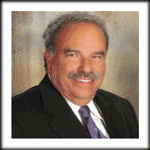Ellen Brazer has authored a captivating book about two brothers.
And as a firstborn brother, I enjoyed reading and relating to Brazer’s book “I Am Meir’s Brother—Biography of A Family Separated by Destiny.
Yes, I’m a firstborn, a firstling, a phirst and a bechor.
And yes, I have often wondered, “If my sister and I had reversed our birth order, what would have been my destiny?”
My gut tells me, “You would have had a lot more fun but at the cost of major instability.”
And yes, the “what ifs” run crazily around my brain.
G-d do I love playing the “what if” game.
And yes, Brazer’s book indirectly examined this universal mystery.
The book presented two loving brothers, Eli and Meir, whose interests and life paths could not have been more different. But both brothers possess or possessed inquisitive and brilliant minds.
These brothers were not sibling rivals. They were not like the jealous brothers who sold Joseph into slavery (Genesis 37:25).
They were loving brothers.
They cared about each other.
They protected one another.
How refreshing that Brazer presented us with an outstanding biography of one of those brothers, Eli Huberman and Eli taught how Meir fit into his life. (1945-2016)
Yes, we’re talking about the legendary Meir Dagan—the Israeli Defense Forces general and Mossad’s Director-General.
And yes, to my surprise, Meir was a vegetarian and an amateur painter.
So now you want to talk about bravery.
Well, Meir epitomized bravery when he saved his comrades lives tackling a wanted terrorist who was holding a live grenade.
Israel’s president, Reuven Rivlin said of Dagan, “Meir was one of the greatest of the brave, creative and devout warriors that the Jewish people ever had.”
Now, that’s one hell of a compliment.
I already had known about some of Meir’s exploits having watched the Netflix, TV mini-series, Inside the Mossad (2017) where this Jewish warrior was interviewed. Even in his later years, Dagan possessed a coyness, a sense of humor and a sharp mind.
I imagined being Meir’s brother, trying to compete with his accomplishments?
I thought, “Almost impossible. No impossible, unless you’re Eli and you develop a cure for cancer—which may just happen.”
So you see, Eli Huberman is still competing with his beloved late brother.
Eli’s a world-renowned cancer research scientist, a developer of anti-viral drugs, an academic and a business entrepreneur (CEO of Novadrug LLC).
Eli is also a firstling, who took what many would consider, the safer path to success—Frost’s more traveled road—into the world of medical research, universities and laboratories and that made all the difference.
While the family’s second born, Meir, travelled down the extremely dangerous road of being an Israeli soldier, who fought in numerous wars and directed and monitored the activities of spies in the world-renown spy agency known as Mossad.
You guessed it, by today’s sibling-rivalries-measuring stick, Meir’s Wiki page is a lot longer than Eli’s. (Note to readers with brothers or sisters: “size does matter,” so now is the time to do your word-counts on your Wikipedia pages. G-d forbid you open your playbill in Heaven and see your name listed under supporting cast.)
But as I have previously told you, Eli doesn’t seem to care about fame, he does not need to do a word-count because he is self-actualized.
I, on the other hand, as a bechor, have often thought, “My parents must have been timid, careful and scared when they raised me; were much less protective in how reared my younger sister.
I wondered, “Did they ever regret it?”
“I doubt it.”
They never enrolled in Psychology 101.
What did the name Alfred Adler mean to them?
“Nada”
For Adler argued:
That birth order can leave an indelible impression on an individual’s style of life, which is one’s habitual way of dealing with the tasks of friendship, love, and work. According to Adler, firstborns are “dethroned” when a second child comes along, and this may have a lasting influence on them. Younger children may be pampered and spoiled, which can also affect their later personalities. When examining answers from organized studies, personality and attitude traits are repeated when comparing different children born into the same birth order. (Wikipedia)
And as a firstborn child, I agreed with Adler.
I got away with almost nothing, while my young sister got away with murder.
Who says life is fair?
Did my parents’ behavior lead us down different paths—to different destinies?
Well, Brazer’s story confirmed the younger risk-taker-verses-the-older-risk-adverse-child theory.
Further, Brazer has authored a family saga into “Huberman World.”
A world filled with epic moments: the Nazi invasion into Poland, Soviet labor camps, the family’s life in the early days of the State of Israel and the wars of 1956, 1967, 1973 and 1982.
Eli’s story added the complexities of the ups and downs in the life of a scientist and its effects on a loving family.
Brazer demonstrated her writing skills, in her ability to simplify complicated cancer studies, to the point where even I, seemed to understand them.
As I have often said, “Good books leave you asking questions.”
And Ellen Blazer’s book left me asking a bunch:
Were these Jewish brothers separated by destiny or was it due to something as trivial as their birth order?
Why is the small nation of Israel, so blessed and fortunate or lucky to possess such great men like Meir and Eli?
What is my destiny?
Can families really be separated by destiny?
Is sibling rivalry all it’s cracked up to be?
For all of the above, I recommend you read, I Am Meir’s Brother—Biography of A Family Separated by Destiny” by Ellen Brazer.
